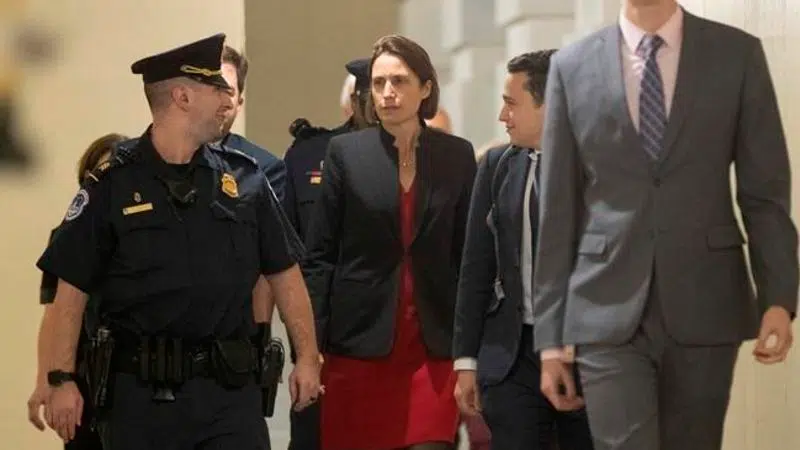
Vivid details emerge on Ukraine as impeachment quickens
WASHINGTON — The impeachment inquiry is revealing vivid new details about the high-level unease over President Donald Trump’s actions toward Ukraine, and those of his personal lawyer, Rudy Giuliani, as the swift-moving probe by House Democrats showed no signs Tuesday of easing.
The testimony from the witnesses, mainly officials from the State Department and other foreign policy posts, is largely corroborating the account of the government whistleblower whose complaint first sparked the impeachment inquiry, according to lawmakers attending the closed-door interviews.
One witness, former White House aide Fiona Hill, testified that national security adviser John Bolton was so alarmed by Giuliani’s back-channel activities in Ukraine that he described him as a “hand grenade who is going to blow everybody up.”
Another, career State Department official George Kent, testified Tuesday he was told by administration officials to “lay low” on Ukraine as “three amigos” tied to the White House took over U.S. foreign policy toward the Eastern European ally.


